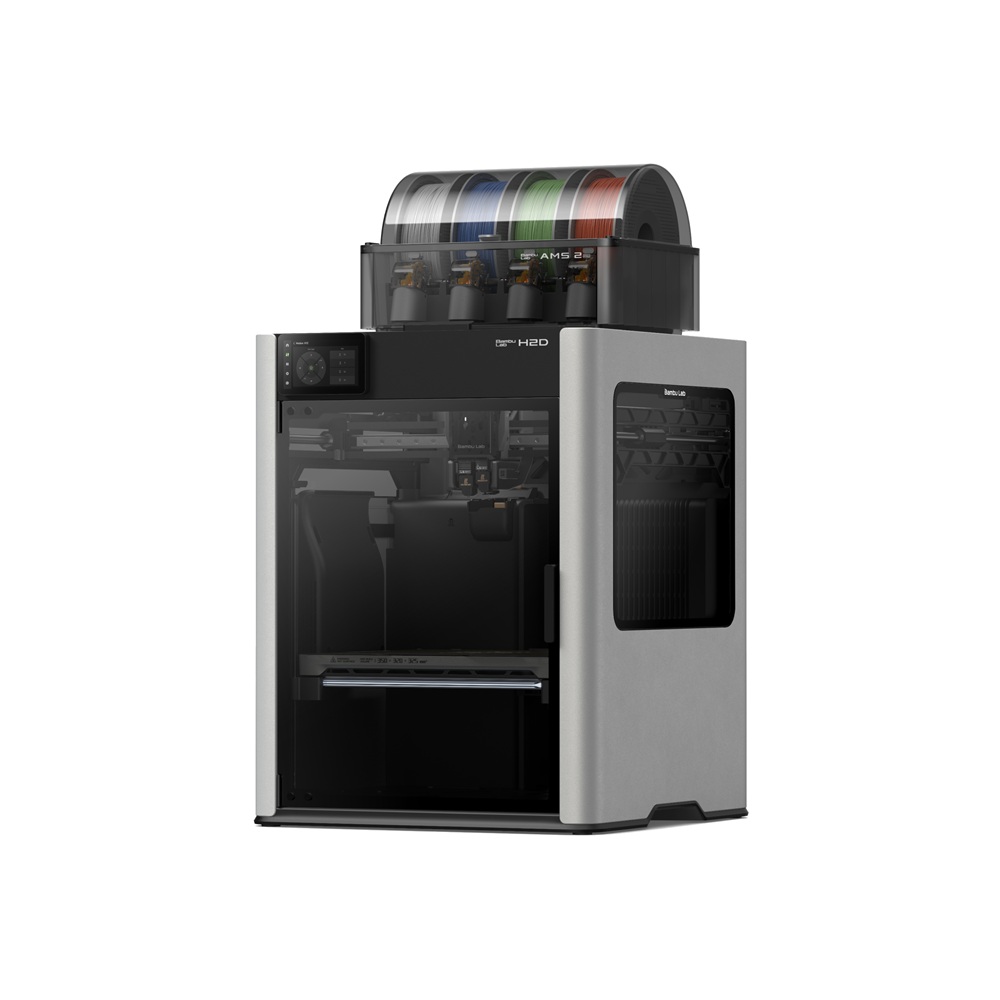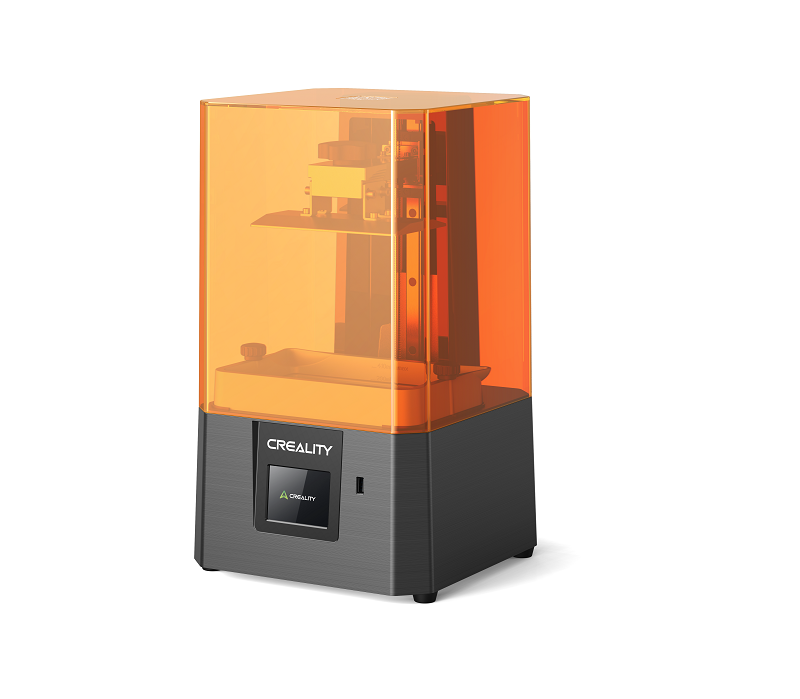Compare H2D vs Halot R6
Comparison between the best 3D printers
Choose the best 3D printer at the best price. The cheapest 3D printers are here.
Buy a 3D printer here with 3D Fila.
 |
 |
|
| Model | H2D |
Halot R6[BUY Halot R6] |
| Printing Material | Filament | Resin |
| Buy Filament for Bambu Lab H2D | Buy Resin forCreality Halot R6 | |
| Estimated price | $1899,00 | $129,00 |
| Manufacturer | Bambu Lab | Creality |
| Release Year | 2025 | 2024 |
| Print Volume [mm] | 350x320x325 | 130x82x160 |
| Printer Size [mm] | 492x514x626 | 235x230x395 |
| Weight [kg] | 42,3 | 5,8 |
| Power Loss Recovery | YES | NO |
| Maximum Resolution [mm] | 0,01 | 0,01 |
| Processor | ||
| Display | Touchscreen 5'' | Touchscreen 2,8'' |
| Power Supply | 42W | |
| Connectivity | Wifi, Bambu bus, Cartão SD | USB drive, WiFi |
| Operating systems | Windows, Mac, Linux | Windows, Mac |
| Date of registration in the system | 2025-03-31 | 2024-12-05 |
| Release date | 2025 | 2024 |
| Extra features | Bambu Labs H2D combines high-speed 3D printing with a chamber heated up to 65 °C, dual extrusion with automatic nozzle switching, an AMS for filament drying and exchange, and AI sensors that detect failures. It offers optional laser and digital cutting capabilities, features intelligent calibration through computer vision, vibration control, enhanced fire safety, and real-time camera monitoring. | The Creality Halot R6 offers high precision with a layer height of 0.01-0.2 mm, a printing speed of 60 mm/h, and an integral light source with over 90% uniformity. Compact and lightweight, it features a 6.08" monochrome LCD for faster curing and extended durability. Includes Wi-Fi connectivity via Creality Cloud, an intuitive touchscreen interface, and supports remote monitoring and timelapse recording with a USB camera. Ideal for beginners, its robust and user-friendly. |
| Support for multiple colors and materials (AMS and CFS) | YES | NO |
Notes * |
||
| Cost-benefit | 7 / 10 | 9 / 10 |
| Hardware | 8 / 10 | 9 / 10 |
| Tela | . | . |
| Print volume | 4 / 10 | 3 / 10 |
| Performance | 5 / 10 | 9 / 10 |
| [BUY Halot R6] |
Conclusion |
| In comparing the Bambu Lab H2D and the Creality Halot R6, it becomes clear that both printers serve distinct purposes and user bases. The H2D, with its advanced features like dual extrusion, AI failure detection, and a large print volume, is designed for serious hobbyists and professionals looking for high-speed production and versatility in materials. Its robust build and comprehensive connectivity options enhance its appeal, but it comes at a significantly higher price point. On the other hand, the Halot R6 is an excellent entry-level option, offering a balance of high precision and user-friendliness at a fraction of the cost. It's particularly suitable for beginners or those who primarily work with resin and require a compact, lightweight printer. The Halot R6’s affordability, ease of use, and decent specifications make it a compelling choice for those new to 3D printing. In summary, the choice between the two depends largely on the user's requirements: if performance and diverse functionality are paramount and budget is less of a concern, the H2D is the clear winner. However, for those seeking affordability, simplicity, and sufficient capabilities for smaller projects, the Halot R6 stands out as the better value. |

